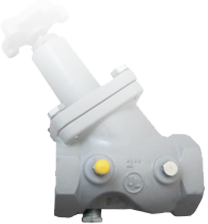SAFE. WARM. SMART.

What is propane?
Propane is a hydrocarbon (C3H8) and is sometimes referred to as liquefied petroleum gas, LP-gas, or LPG. Propane is produced from both natural gas processing and crude-oil refining. Nearly 97 percent of propane used in the United States is produced in North America. It is nontoxic, colorless, and virtually odorless. As with natural gas, an identifying odor is added so the gas can be readily detected.
“Regardless of the type of energy you use, safety is extremely important. With propane—as with electricity, natural gas, fuel oil, gasoline, or any other energy form—you need to understand how your delivery system and appliances work, and what to do in case of a leak or other safety related emergency.”
Energy costs. Peace of mind. Comfort. Practicality. These are a few of the issues most homeowners consider when looking into home heating options. Homeowners like you often have many questions, and the good news is, we have the answers. Trained propane professionals can tell you about the many advantages of heating your home with propane. In addition, you can find more information, including how propane compares with other home heating alternatives, in the Comparative Analysis of Residential Heating Systems. This study was commissioned by the Propane Education & Research Council and done by Newport Partners LLC, a research firm that specializes in the analysis of building systems’ energy performance.
A versatile, efficient choice
Propane home-heating systems can be configured as central or zone, forced air or radiant. Propane furnaces and boilers come in all shapes and sizes and have a typical operating life of 15 to 20 years. Many propane furnaces with an AFUE of 95 or higher and boilers with an AFUE of 90 or more qualify for tax credits and other incentives that can pay a portion of your purchase and installation costs.
Reduce your carbon footprint
Studies by the Environmental Protection Agency show that propane heating systems generate 68 percent fewer greenhouse gas emissions than electricity, because most electricity is produced by coal-fired power plants.
If you live in the Northeast, you should be aware that propane has 50 percent less carbon than fuel oil, which means it produces far less particulate pollution when burned. That’s why propane is an approved alternative fuel recognized by the Clean Air Act of 1990 and a qualifying alternative fuel, eligible for various federal tax incentives under the Energy Policy Act of 2005.
Perfect for off-the-grid living
If you live in an area not served by a natural gas main, propane’s exceptional capabilities mean you don’t have to trade quality of location for quality of living. In addition to fueling forced-air furnaces or boilers, propane can easily be used for radiant in-floor heat, space heating, and direct vent fireplace heating. Qualified technicians can install aboveground or underground propane storage tanks and safely run all connections to household heating appliances.
Inherently safe
When it comes to the safe handling of propane, our industry’s commitment to professional training makes all the difference. In fact, the propane industry’s Certified Employee Training Program is required in eight states and used by propane marketers nationwide. With proven teaching materials and extensive documentation from the Propane Education & Research Council, this highly respected certification program meets rigorous training requirements developed by key agencies, including the Occupational Safety and Health Administration and the National Fire Protection Association.

